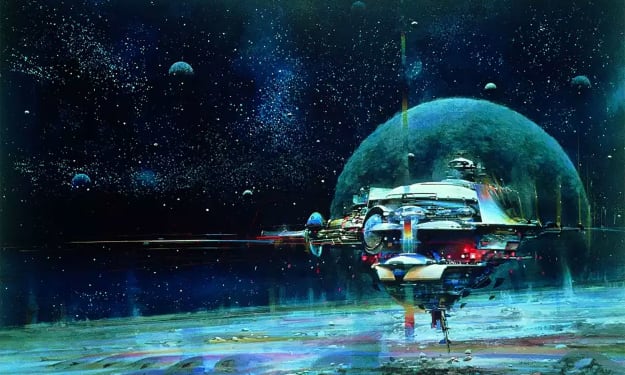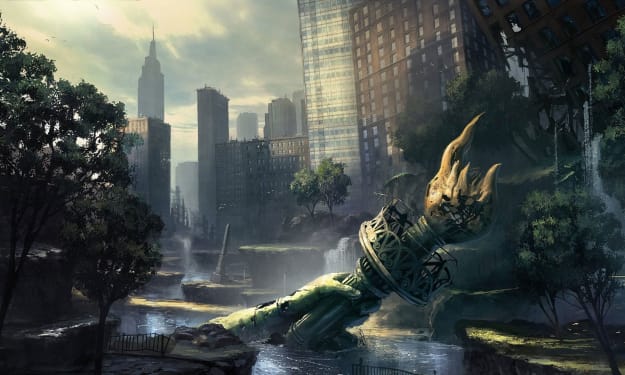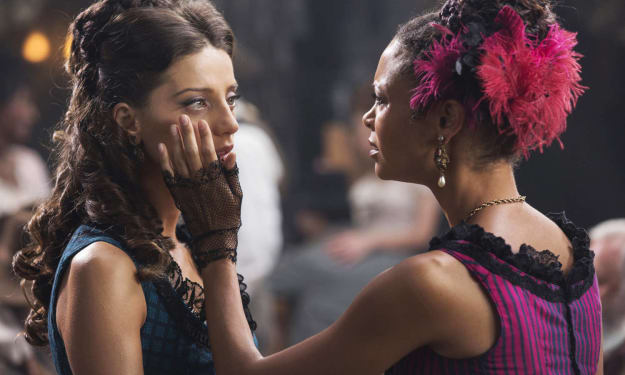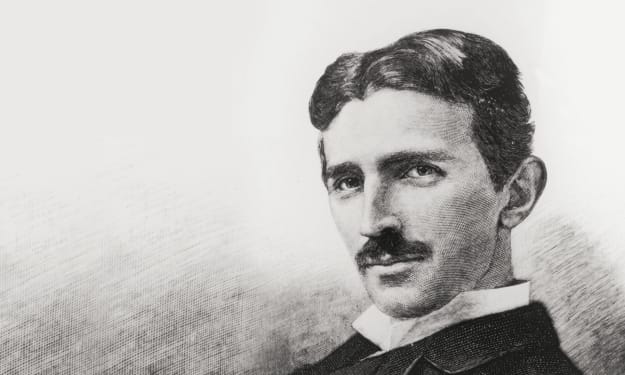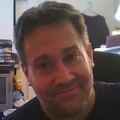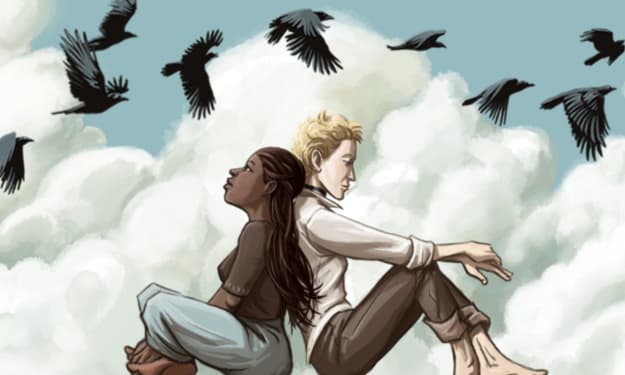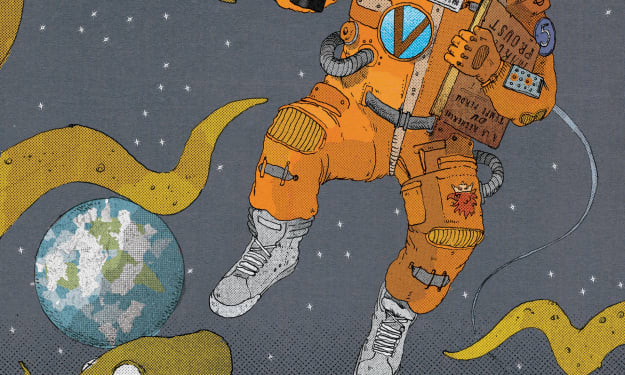literature
Science fiction's most popular literary writers from Isaac Asimov to Stephen King and Frank Herbert, and the rising stars of today.
Pain & Paranoia
The itching in his leg consumed Jason’s attention as he sat in his bland, beige cubicle. He scratched at his shin with the heel of his shoe, while trying to keep a smooth rhythm of clacking on his keyboard. He answered his phone without stopping the rubbing at the front of his shin, just above his ankle. The digging of his shoe heel caused an aching and a bruise throughout his shin, but only stopped the itching momentarily.
By Jeff Sherwood8 years ago in Futurism
Thought Provoking Political Dystopian Books
If 2016 can teach us anything, it is that fiction can become reality. As a common rule, humanity strives for constant progress; movement towards a superior standard of living. But what happens when everything goes wrong instead? As humans we constantly question the 'what if' scenario. The dystopia genre is the anthesis of utopia and is a mainstay of science fiction writing over the years. The genre has taken the 'what if' to speculate about a future where every aspect of life has taken a distinct and frightening turn for the worse. Within the classic dystopian genre there lies the more thought provoking political dystopian theme. A typical tale involves a future society with an oppressive government that demands conformity. Sometimes this is in the wake of a disaster that has befallen humanity or society as a whole has taken a dark and oppressive turn for the worse. Often times there are no beautiful endings in these political dystopian books, only a joyless and dysfunctional future with glimpses into the light.
By George Gott8 years ago in Futurism
The Science Fiction of Music
My first novel, Big in Japan, is about a neurotic American prog-rocker coming of age in Japan. My second, Jellyfish Dreams, is about a biologist’s quest to reanimate his dead fiancée at the instigation of a black hole beneath his sofa. Readers who’ve read both books usually remark on how different they are, but I don’t see it that way. For one thing: crazy artist, mad scientist—same difference. For another, even if you agree with (a quote I’ve seen attributed to) sf comics genius Warren Ellis that “Prog rock was sick and wrong then and it is sick and wrong now,” one can’t deny that prog drinks as liberally from the sf well as it does from the epic and fantasy ones. And so, a primer on some of history’s more salient prog-sf conjunctions:
By M. Thomas Gammarino8 years ago in Futurism
Sci-Fi's Obsession with the American West
I was once in Big Bend National Park and thought I’d stepped onto another planet. If you’ve had the misfortune never to have visited, it’s a mostly parched desert wonderland with the strangest flowers, succulents, and eerie hills that you can imagine. Toss in the sexy wild lawlessness of the historical American West and you can see why science fiction would create some of its most memorable works against such an awe-inspiring backdrop. From cartoons like Cowboy Bebop and Trigun to animated shows like Galaxy Rangers and Bravestarr, science fiction clearly has a great big ol’ crush on the American West. There’s DC Comics’ Jonah Hex, a whole slew of terrible B-movies, and then there are the great ones: films like Westworld and Back to the Future Part III, books like The Gunslinger, and shows like Firefly (*sniff*). If you haven’t seen them yet, check out these incredible tributes to science fiction and the West all in one beautiful biomechanical horse meets pony-express package.
By Sarah Quinn8 years ago in Futurism
Buried Screwball Facts About Nikola Tesla
Travel anywhere outside the United States and the name of Nikola Tesla is known. Ask the average person on an American sidewalk? They’re apt to recall the 80’s rock band. Or they’ll nod and mumble about Elon Musk’s motor company.
By Matt Cates8 years ago in Futurism
‘Forbidden Planet’ - A Sci-Fi Haunted House Tale
“In times long past, this planet was the home of a mighty, noble race of beings who called themselves the Krell. Ethically and technologically they were a million years ahead of humankind, for in unlocking the mysteries of nature they had conquered even their baser selves, and when in the course of eons they had abolished sickness and insanity, crime and all injustice, they turned, still in high benevolence, upwards towards space. Then, having reached the heights, this all-but-divine race perished in a single night, and nothing was preserved above ground.”
By Will Stape8 years ago in Futurism
Isaac Asimov's Autobiography: In Memory Yet Green
I ran into my pal, Matthew B. Tepper, a fellow Isaac Asimov enthusiast at the L.A. Science Fiction and Fantasy Society. To date, he owns 465 of the 515 books Asimov wrote. I asked him if he had any suggestions of what I ought to read that most people hadn’t from his oeuvre. He brought me into LASFS’ extraordinary library. Therein he pulled out the first volume of In Memories Yet Green, Isaac Asimov’s autobiography and said “read this.”
By Joshua Sky8 years ago in Futurism
The House Had Eyes
Every morning I wake up and crave three things: Sex, coffee, and my phone. Usually, the closest thing on hand is the phone—but before I reach for it, a thought always flits through my being—this doesn’t have the answers. I reach for it anyway. And all too often, I’m disappointed.
By Joshua Sky8 years ago in Futurism
Sci-Fi Webcomics to Devour All At Once
Not so long ago, there weren't enough great sci-fi webcomics to shake a ray-gun at. Now, you've got serious options for pretty much every sub-genre you can imagine, from hard sci-fi to space opera to satirical speculative space fantasy. Here's my list of the best sci-fi webcomics to make you laugh, make you think, and feel like a kid again with the best Sunday paper in the galaxy.
By Sarah Quinn8 years ago in Futurism
‘The Invisible Man’ - Science Fiction’s Great Horror & Humanity’s High Tech Desire
“An invisible man can rule the world. Nobody will see him come, nobody will see him go. He can hear every secret. He can rob, and rape, and kill! Power, I said! Power to walk into the gold vaults of the nations, into the secrets of powerful kings, into the Holy of Holies; power to make multitudes run squealing in terror at the touch of my little invisible finger. Even the moon's frightened of me, frightened to death! The whole world's frightened to death! “ -
By Will Stape8 years ago in Futurism
Space (Part II - Vonnegut's Cat's Cradle)
In my last article, I discussed William Gibson's cyberpunk classic Neuromancer as a key text in the convergence between science fiction and postmodernism. This time, I want to stay right on the cusp and consider the case of Kurt Vonnegut, who happens to be the writer who made me want to be one myself someday.
By M. Thomas Gammarino8 years ago in Futurism

